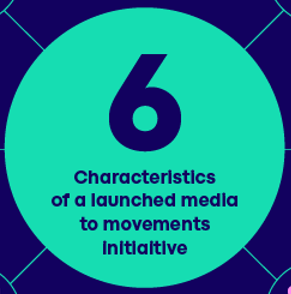
Guest Post by MII Partner: Nick Runyon
While attending a missions meeting at my church this week, I was asked to share a bit about my experience in Digital Ministry with a small group of people eager to learn about opportunities for sharing their faith. As I told about my experience training teams in digital evangelism with MII, an older woman named Sue spoke up. “I think I’m doing digital ministry too,” she said.
Sue went on to explain how God had given her a heart to pray for the Uyghur people group. After doing some research online to learn more about this group of people whom she knew nothing about, Sue found and joined a weekly prayer group that meets over Zoom to pray for the Uyghurs. Some time later, an opportunity to coach English to three Uyghur women interested in gaining new language skills became available. Sue jumped at the opportunity and became an English teacher, using Whatsapp to meet with her group. As part of the course, the group needed to read aloud in English to one another. Sue chose Bible stories from the Gospel of Mark as their text. (At this point, I was developing quite an affinity for this bold woman from Montana!) What began with a call to prayer blossomed into an online English class/Bible study. God is amazing.
Listening to Sue, I was reminded again of how great God is, and how many opportunities we have to work out our faith in this world. I was also reminded that “Digital Ministry” is real ministry. “Digital” is just a reference to the tools being used. What makes digital ministry effective are three elements that must be present in any ministry effort.
1. Prayer
The core of ministry lies in our relationship with God. My Montana friend’s story beautifully illustrates this. Before Sue connected with these women, she was connected to God through prayer. Digital ministry is not just about using tools to spread a message broadly, but about connecting hearts and lives to our Heavenly Father. Prayer is central in any successful ministry.
2. Relationship
Often, we are tempted to think that true relationships can only be built face-to-face. However, this story challenges that notion. The connection formed between Sue and the Uyghur women was not hindered by screens or miles. Through platforms like Zoom and WhatsApp, they continued to nurture their relationship, proving that genuine connections can flourish online. In the digital era, our approach to ministry must embrace these virtual avenues as potent tools for relationship building.
3. Discipleship
There is no doubt that Sue is a disciple of Jesus. She listens to His voice through prayer, obeys the prompting of the Holy Spirit, and is teaching others about Jesus and how to follow Him, too. Sue’s story is so simple and that is what makes it so lovely. When disciples of Jesus are engaging their world to share the love and hope of the Gospel, the tools used tend to fade away while the glory of God’s faithfulness comes into sharp focus.
I’ve continued to think about this conversation throughout the week. The importance of prayer, relationship building, and discipleship continues to resonate with me. I’m thankful for the opportunity to share this experience with you, and as you read this post, I hope you’ll consider how these elements are present in your own life and ministry. Together, let’s pray for opportunities like the one Sue was given, and for the boldness to say “Yes!” when they are presented to us.
Photo by Tyler Lastovich on Pexels
Guest Post by Media Impact International (MII)
For more content from Media Impact International, sign up to the MII Newsletter.

